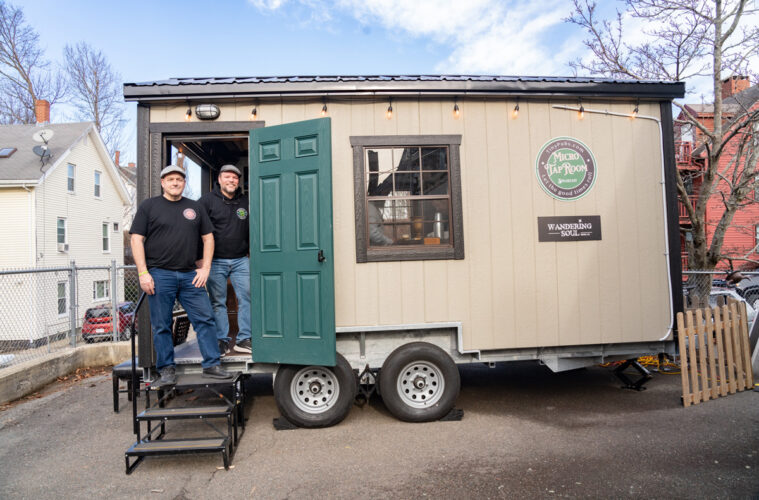It’s a tough time for the craft beer industry. Brewers remain in a recovery state from the COVID-19 pandemic; material costs have risen over two years of inflation; consumers are drifting toward beer alternatives, like nonalcoholic beer and hard seltzer, whether for health reasons, monetary ones, or both. Faced with this combination of market forces, breweries are either shuttering or merging with other companies to sustain their businesses.
Beverly’s Matt Smith has approached this volatile environment with an innovation: taking beer to his customers instead of having his customers bring themselves to his beer. Smith’s brewing project, Wandering Soul Beer Co., has functioned as a partner brewing outfit (the old terminology, “contract brewing,” has grown passé) practically from its start in 2017, so the distribution model isn’t new to him. What is new is his method of distribution: You can find cans of Wandering Soul beers on shelves, certainly, but why go to the store when you can visit Smith at his mobile taproom?
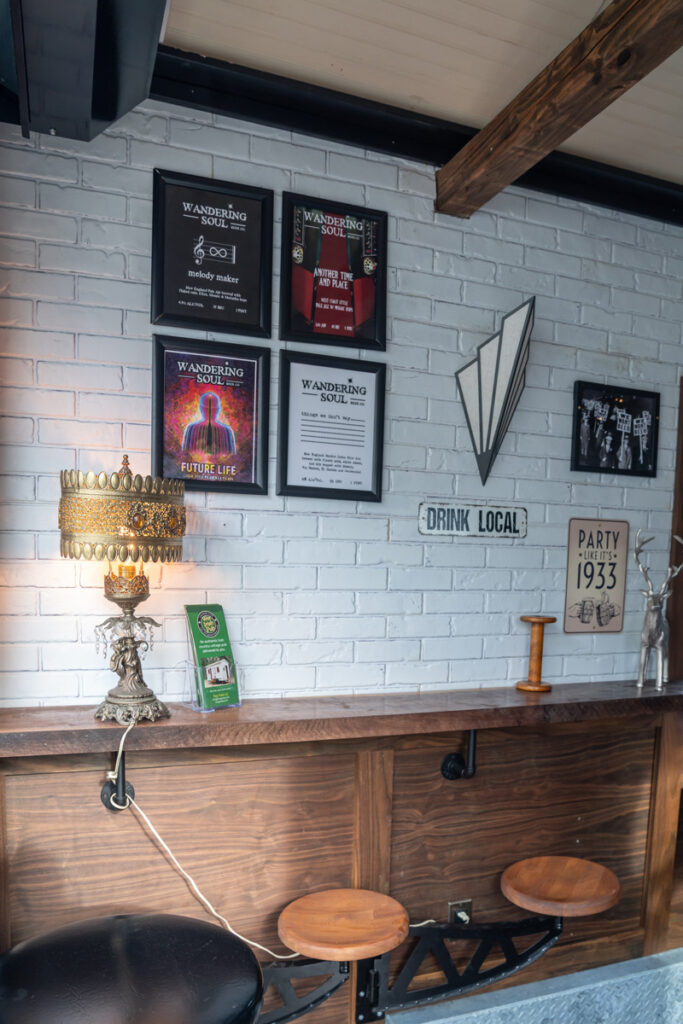
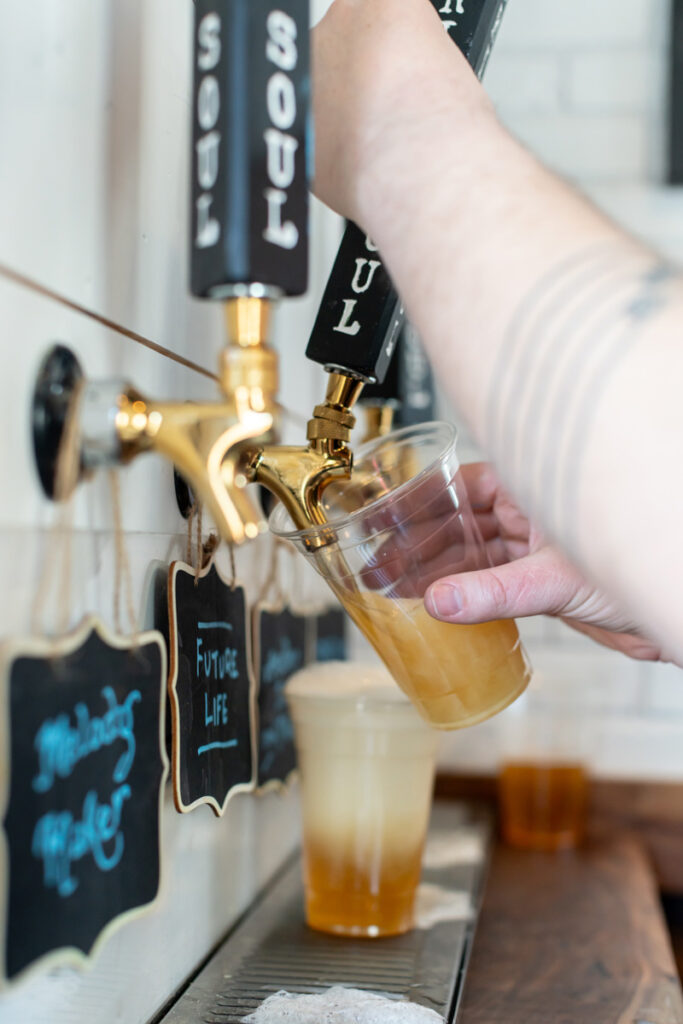
Matt Smith started Wandering Soul Beer Co. in 2017 in response to a family tragedy: The loss of his and his wife Abby’s first child, Melody, in utero, at 8½ months. Over the next five years, Matt poured himself into Wandering Soul to honor Melody’s memory. His flagship beer, Melody Maker, is his tribute to her. He announced an indefinite hiatus in fall of 2022. “It was just too much for me,” Smith says. “It wasn’t sustainable anymore, and I felt like I had accomplished what I wanted to with it. It felt like it had run its course for me, personally.”
Passion has a way of rekindling itself, and in 2023, Smith realized he missed brewing. “I had a conversation with myself about weighing the pros and cons of returning to it,” he explains. He knew he needed to set rules for himself to stave off burnout; he has a distributor to deliver Wandering Soul beers for him, to start, and he’s added a lineup of sparkling hop waters, called Hidden Path, to his repertoire. Most of all he has a taproom on wheels.
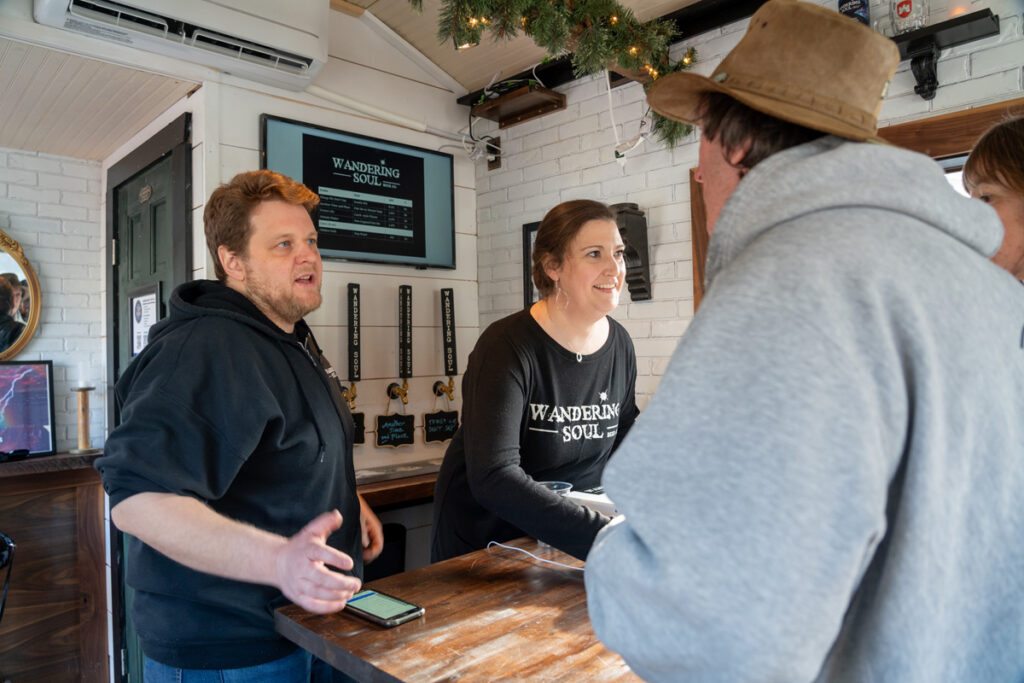
This alteration of the direct-to-consumer model typical to the craft beer industry suits Smith on a few levels. For one, it dovetails nicely with Wandering Soul’s character. “I don’t view [Wandering Soul] as being tied down to a specific place,” Smith says. “I wanted to preserve that, and that’s where the idea for the mobile taproom came about.” There’s a financial element at play here, too: Opening a full taproom right now presents a daunting risk, and the mobile taproom lets him pare back overhead.
“I approached this company called Tiny Pubs,” Smith explains. “It’s these two brothers that started this company of little mobile pubs, so we’re calling it the Micro Taproom.” Tiny Pubs rents out a handful of different mobile taprooms, including the Wee Irish Pubs, decorated to evoke the spirit of an Irish bar; for Smith, they built him a space to rent that, by a delightful accident, looks like the shed behind his house, where he first began brewing batches on his humble 5-gallon setup. It’s another instance of the mobile taproom concept being simpatico with Wandering Soul’s aesthetic and Smith’s story.
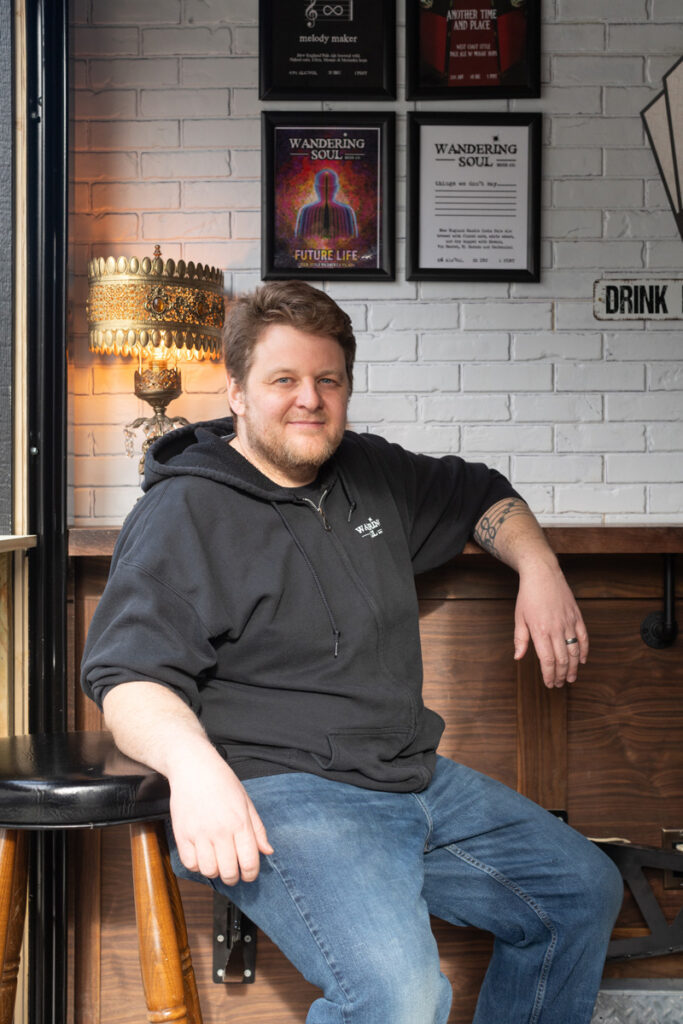
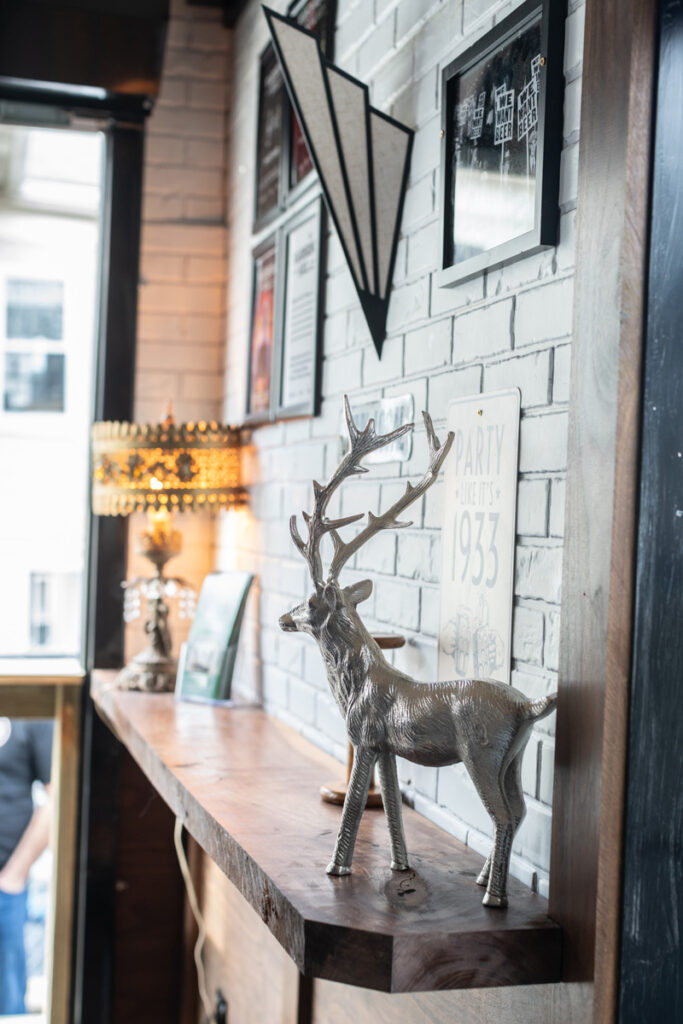
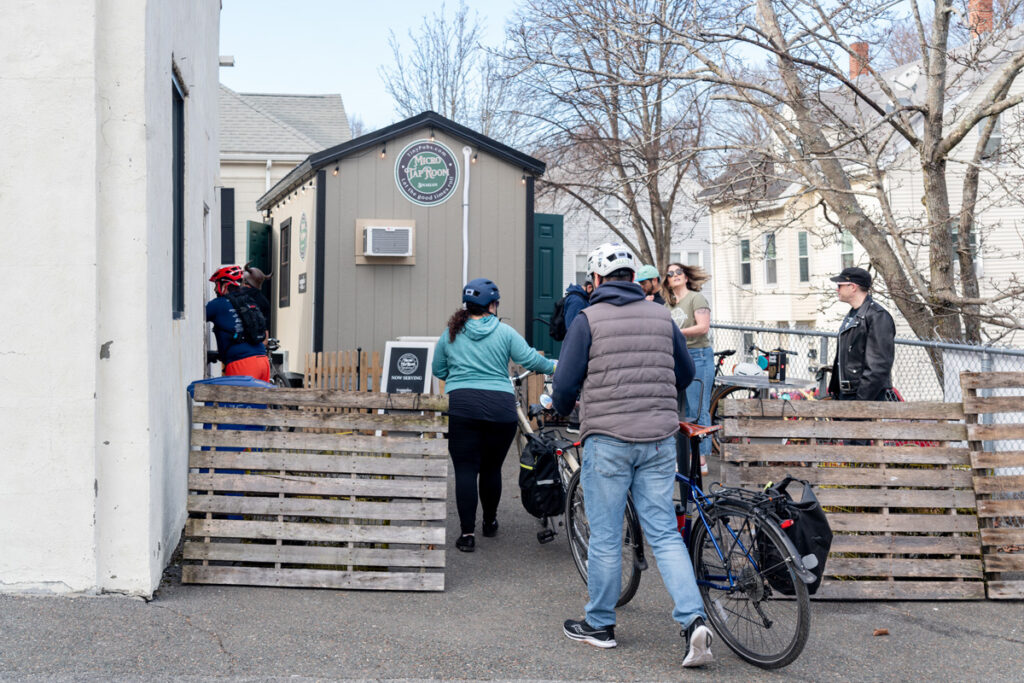
The Micro Taproom doesn’t come without obstacles. Every town has different laws and regulations surrounding the sale and consumption of alcohol, and Wandering Soul has to navigate them, which is a task easier said than done. “It’s not like I can pull the thing up in a park and just start selling beer to people,” Smith says with a laugh. “It doesn’t work like that. It’s regulated; it’s alcohol; there have to be ID checks and a perimeter and all sorts of different rules.”
But these complications won’t deter him. If anything, they’re motivation to push boundaries and be a pioneer in the field. “My focus is on doing things that are different and haven’t necessarily been done before,” Smith says. “I’d rather take the risk doing something no one’s ever done than opening a brewery.”

